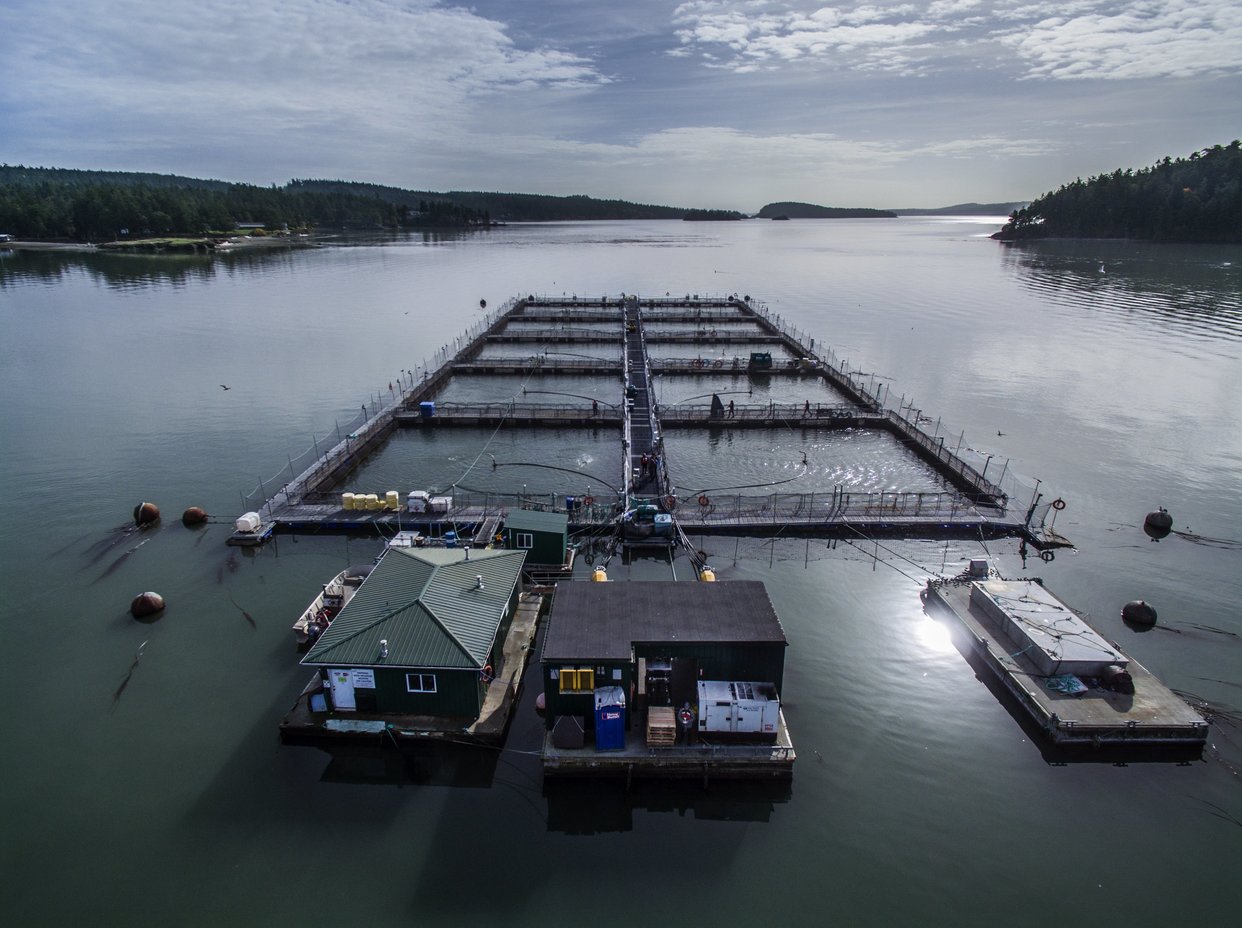It was a gorgeous summer evening on Orcas Island in Washington State. I dug my bare feet into the sand on a friend’s beach near Rosario Strait. Mt. Baker, one of the Pacific Northwest’s iconic volcanoes, shone in the distance and its reflection shimmered on the glassy water. And then the splashing started. Big fish leaping out of the water within stone-skipping distance from where we sat. At first, I didn’t think much of it, and was momentarily transported to the shores of Alaska, where jumping salmon this time of year is the way things are up there. And it’s the way things should be here, only not with the fish springing from the water before me. These fish don’t belong here. They came from the Atlantic Ocean, and no, they didn’t swim around the tip of South America or take the shortcut through the Panama Canal to get to the Pacific Ocean. We brought them here.
Atlantic salmon (Salmo salar) is a non-native species to our waters. In fact, the state of Washington considers it an invasive species — a pollutant harmful to our beloved and struggling native Pacific salmon. And yet we allow this invasive pollutant to be farmed in net pens in our marine waters. What could possibly go wrong? What could go wrong, and did go wrong, is a massive breach of Cooke Aquaculture’s net pen near Cypress Island, releasing several hundred thousand pollutants into our waters, where our native Pacific salmon are already on life support. Breach, escape, spill — call it what you want. It’s a disaster. And what are we told to do? Go fish! While we should be doing everything we can to get these fish out of our already beleaguered waters, why is sending Johnny out in a rowboat the emergency response plan?
Sitting on the beach, I watched the non-native salmon erupt from the surface of the water. My friend Bruce is 63 years old and is the third generation of his family to steward this beautiful stretch of paradise. He told me that never in his lifetime had he seen leaping salmon here. I find this sad, infuriating and unconscionable. Sad that native Pacific salmon don’t frolic along this beach on their way to the Skagit, Elwha or Fraser rivers to spawn. Infuriating that the non-native salmon leaping before us are hindering our efforts to restore our native salmon to the Salish Sea. And unconscionable that Washington state allows Atlantic salmon to be farmed in our marine waters at all.
Bruce is doing his best to clean up this toxic spill. He caught one fish that morning with his casting rod, and he caught another one just as I arrived. I looked at this fish out of water with its deformed gill plate and took pity on it. It’s not the fish’s fault it’s so far from home. It’s not the fish’s fault it was raised in a crowded net pen — a concentrated feedlot — and fed antibiotics to stave off the inevitable disease that occurs in filthy living conditions. And it’s not the fish’s fault its escape is harmful to its Pacific counterparts.
What is the harm? Competition. For food, mates and spawning grounds. Atlantic salmon eat prey otherwise eaten by Pacific salmon as well as by other species, including seabirds. They also eat the young Pacific salmon making their way from their birth streams to the ocean to take a shot at becoming adults. They enter freshwater streams and compete with spawning Pacific salmon, preventing the native species from passing on their genes. To top it off, Atlantic salmon can spread disease to our native salmon. C’mon Washington, we know better, and we’re better than this.
This disaster is more than just a breach of a net pen. It’s a breach of trust. How many millions of dollars are spent each year in Washington state to restore Pacific salmon? What do we have to show for it? There are success stories — the recent removal of the Elwha River dams with salmon returning to that beautiful river as it rewilds itself is a triumphant step in the right direction. We need more of these steps. What we don’t need are non-native invasive pollutants in the form of Atlantic salmon hindering our efforts to restore our wild Pacific salmon to their rightful home. Let something positive come of this mess. Let this be our moment in history when we ban all salmon farming from Washington state.
Email Dock Talk submissions to [email protected]. Submissions should be approximately 600 words and include daytime phone number and Social Security number. Authors published in Dock Talk receive $150.







